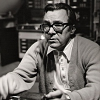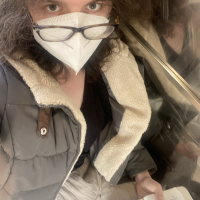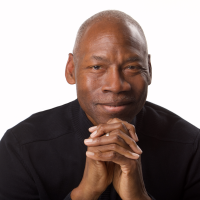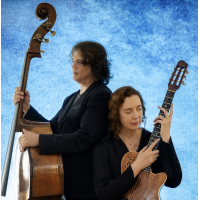Home » Jazz Musicians » Gil Scott-Heron
Gil Scott-Heron
“I consider myself neither poet, composer, nor musician. These are merely tools used by sensitive men to carve out a piece of beauty or truth they hope may lead to peace and salvation.”
He has been opening eyes, minds and souls for over thirty years. A highly influential and widely admired singer, proto-rapper, jazz pianist, poet, novelist and socio- political commentator, Gil Scott-Heron remains a unique figure in global music. With over fifteen albums to his name, his politically charged output has won him an international following. His work illuminates a philosophy of life that holds human affection as well as political and artistic responsibility as the underlying factors that inspire his writing.
Gil Scott-Heron was born in Chicago in 1949. Both parents divorced whilst Gil was still a child and he was dispatched off to his grandmother in Lincoln, Tennessee. His grandmother helped Gil musically, however, early racial tensions at school, led him to relocate again to the Bronx during his adolescent years to live with his mother and he later moved again to the Spanish neighborhood of Chelsea.
As a student, he admired the poetry of Langston Hughes and followed his footsteps by enrolling in Lincoln University. It was at college he met Brian Jackson, who was later to be a long time musical collaborator. By age 20, he completed the novel ‘The Vulture’ and the book of poetry, ‘Small Talk At 125th & Lenox.’ He released his debut album, “New Black Poet: Small Talk at 125th and Lennox,” in 1970, the album contained the powerful “The Revolution Will Not Be Televised,” a damning attack on the media and the state of the union from how he saw it. This was just the beginning.
The follow up album, 1971's “Pieces of a Man,” showed a growing musical maturity, featuring 'Lady Day and John Coltrane' and the, less political, “I Think I'll Call It Morning,” “Pieces of a Man,” and what would be his nemesis of “Home is where the Hatred Is,” this was released under Bob Thiele's, Flying Dutchman Records. The musicians on this record were Brian Jackson on piano, Ron carter, bass, Bernard Purdie, drums, and Hubert Laws on flute and sax. Gil signed a one album deal for Strata East, in 1974 with Brian Jackson, and released the album “Winter In America,” which contained the original version of “The Bottle.” This was an underground and cult hit then worked its way into the R&B charts.
Read moreTags
Gil Scott-Heron, Esperanza Spalding, Joe Williams and More

by Jua Howard
Welcome Music Family! It's time for another episode of the First Instrument Jazz Show. As usual, I've got a great show in store for you including music from {m: Gil Scott-Heron, Sarah Elizabeth Charles, Joe Williams, Esperanza Spalding, Donald Byrd,Alexis Coleand many more. Come get lost in the music with me!Playlist Intro 00:00 The Baylor Project “Becoming" from Generations (Be a Light) 3:14 Zack Foley “I Used to Be Colorblind" from Silent Boomer X (Jazzheads) 10:46 Rochelle Rice ...
Continue ReadingGil Scott-Heron: Paean To The Spirit Of One Of The Last Poets

by William H. Snyder
IntroductionWhat does it take to be a griot? According to the dictionary, griots are a 'member of a hereditary caste among the peoples of western Africa whose function is to keep an oral history of the tribe or village and to entertain with stories, poems, songs, dances, etc.' Gil Scott-Heron did not grow up in West Africa so he wasn't born a griot caste member like Youssou N'Dour was. But there is another word that has been used to describe ...
Continue ReadingGil Scott-Heron-Brian Jackson: Mezzo secolo di una partnership epocale

by Angelo Leonardi
A mezzo secolo di distanza dai primi folgoranti album degli anni settanta, la figura di Gil Scott-Heron resta centrale nella cultura afro-americana contemporanea. Molti rapper l'hanno indicato come ispiratore, Makaya McCraven gli ha dedicato nel 2020 We're New Again e i suoi brani sono stati campionati da esponenti della scena hip hop come Kanye West, Drake e Common. In quest'articolo ricordiamo i primi quattro dischi del cantante/poeta di Chicago (Small Talk, Pieces of a Man, Free Will e Winter in ...
Continue ReadingRemembering Gil Scott-Heron

by Russell Perry
Gil Scott-Heron, musician and poet much loved in the jazz community, passed away 10 years ago on May 27, 2011. His recordings of the '70s and early '80s are critical touchpoints of that era, documenting African-American indignity and pride with a raw street passion. His final release, I'm New Here (XL Recordings, 2010), his first in 16 years, was uncharacteristically preoccupied by family and loss. In the last decade, singers Giacomo Gates and Charenee Wade and beat artist Makaya McCraven ...
Continue ReadingBob Thiele's Flying Dutchman Records: Ten High Altitude Albums

by Chris May
Bob Thiele is best remembered for his years as the artistic director and house producer of Impulse!. He took over from founder producer Creed Taylor in 1961 and stayed with the label until 1969, when he left to run his own Flying Dutchman Records. Thiele's tenure at Impulse! was its most glorious period, when Thiele curated a body of work--daring and ambitious, catching the zeitgeist but also timeless—which has been matched by only a tiny number of other labels.
Continue ReadingGil Scott-Heron / Makaya McCraven: We're New Again

by Karl Ackermann
"All the dreams you show up in are not your own." With those words to an interviewer at The New Yorker, Gil Scott-Heron tried to explain a degree of detachment from I'm New Here (XL Recordings, 2011), his “comeback" and the final studio album before his death that year. The project was initiated by the head of XL and was the first album Scott-Heron released in the sixteen years he struggled with addiction and two drug-related terms in prison. The ...
Continue ReadingSpoken Jazz & New Releases

by Ludovico Granvassu
Spoken word is performance art that goes hand in hand with jazz because words often sound great and notes can speak loud and clear. In this episode we will explore the best of it, together with outstanding new releases that are making our summer even hotter than it already is! Happy listening! Playlist Ben Allison “Mondo Jazz Theme (feat. Ted Nash & Pyeng Threadgill)" from Mondo Jazz Theme (feat. Ted Nash & Pyeng Threadgill) (self-released) ...
Continue ReadingGil Scott-Heron Tribute, "Roots of American Music" Performances by Aloe Blacc, Otis Clay, Lenny Williams, Swamp Dogg

Source:
Chris M. Slawecki
It may be the final week of Lincoln Center Out of Doors, but the festival isn’t winding down when it comes to exciting performances. This week, Lincoln Center celebrates the 40th Anniversary of the landmark Soul at the Center, highlighted by Valerie Simpson’s first tribute to her late partner, Nick Ashford, since his passing. The pair that wrote such Motown hits as “Ain’t No Mountain High Enough,” “Reach Out and Touch (Somebody’s Hand),” and “I’m Every Woman,” made their performing ...
read more
Jazz Musician of the Day: Gil Scott-Heron

Source:
All About Jazz is celebrating Gil Scott-Heron's birthday today!
“I consider myself neither poet, composer, nor musician. These are merely tools used by sensitive men to carve out a piece of beauty or truth they hope may lead to peace and salvation.” He has been opening eyes, minds and souls for over thirty years. A highly influential and widely admired singer, proto-rapper, jazz pianist, poet, novelist and socio- political commentator, Gil Scott-Heron remains a unique figure in global music...“I consider ...
read more
Gil Scott-Heron. 1949-2011...

Source:
Digital Music News
Poet and musician Gil Scott-Heron passed away late this (Friday) afternoon. He was a too-young 62, though that voice and soul remain as vibrant as ever. The passing was confirmed by Scott-Heron's publishing and label partners. Scott-Heron is probably best known for “The Revolution Will NotBe Televised," though he is also credited for influencing a range of musical genres, including hip-hop. This was a diverse and talented artist, one with an unmistakeable voice and impact. That influence stretches into the ...
read more
Gil Scott-Heron (1949-2011): An Appreciation

Source:
Something Else!
Musician and street poet Gil Scott-Heron, best known for “The Revolution Will Not Be Televised," died today. Cause of death was not immediately known; he was 62. Scott-Heron started out at the dawn of the 1970s as a jazz-inclined R&B singer and spoken-word performer, a rapper years before the genre was formally invented. “The Revolution Will Not Be Televised"—which appeared on Scott-Heron's conversational debut recording, 1970's Small Talk at 125th and Lenox—was so influential that the saying ultimately moved into ...
read more
Jazz Musician of the Day: Gil Scott-Heron

Source:
Michael Ricci
All About Jazz is celebrating Gil Scott-Heron's birthday today!
JAZZ MUSICIAN OF THE DAY Gil Scott-Heron
“I consider myself neither poet, composer, nor musician. These are merely tools used by sensitive men to carve out a piece of beauty or truth they hope may lead to peace and salvation.” He has been opening eyes... more
Website | Photos | Articles
Follow Gil Scott-Heron
Put AAJ's Musician of the Day box ...
read more
Grizzlies, Devils, Dolls, Art and Moi Mingle on Free URB ALT Music Sampler-Dos

Source:
4961 Polemics
The second edition of URB ALT Media's free music compilation, “URB ALT Sampler-Dos," offers more genre blurring sounds from around the globe. The compilation collects songs by various eclectic artists including Gil Scott-Heron, Grizzly Bear, MuthaWit, Meshell Ndegeocello, Toro y Moi, No Bra, BLK JKS, Free Moral Agents, and Leila Adu among many others. URB ALT's history of producing the URB ALT showcase and annual festival has exposed the presenters to wonderful signed and unsigned artists deserving of further recognition. ...
read more
CD Review: Gil Scott-Heron, "I'm New Here"

Source:
Pop Dose
On the back of the booklet in Gil Scott-Herons Im New Here CD is a message. The message reads as follows:
There is a proper procedure for taking advantage of any investment. Music, for example. Buying a CD is an investment. To get the maximum, you must listen to it for the first time under optimum conditions. Not in your car or on a portable player through a headset. Take it home. Get rid of all distractions (even her or ...
read more



















.jpg)


_with_Skip_Mcdonald_(Right)_23_n.jpg)










